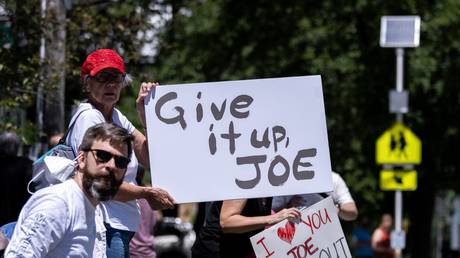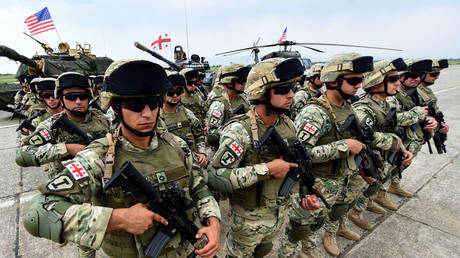When a young Bini rode his bike down the plains of Sedici, he was not just pedaling; he was dreaming. Like every aspiring young cyclist in Eritrea, he saw himself racing alongside legends, conquering the treacherous mountain passes of the Alps, and sprinting down the Champs-Élysées in Paris. In his imagination, the Tour de France—the pinnacle of cycling—was more than just a race; it was a grand adventure, a work of pain, passion, and perseverance.
“Cycling is in our blood; we love it. We have a long generation of talented cyclists”, said Bini during one of his interviews.
Back to those sun-drenched days in Sedici, Bini’s imagination soared. He pictured the throngs of cheering spectators, the blur of colorful jerseys, and the relentless pace of the peloton. He could almost hear the crowd’s roar as he crossed the finish line, arms raised in victory. The Tour de France wasn’t just a far-off dream but a vivid, pulsating vision that fueled his every ride.
Every time he mounted his bike, Bini was transported to the rugged ascents of the Alps, where the air thinned, and every pedal stroke demanded sheer willpower. He envisioned the pain in his legs as a badge of honor, a testament to his determination. He imagined the strategic battles played out in the winding descents, where speed and precision could distinguish between triumph and defeat.
The Tour de France, for young Bini, was not just a race but a journey of the soul. It marked the heights of human achievement, the relentless pursuit of excellence, and the triumph of spirit over adversity; that is the Eritrean way. As he pedaled through the familiar landscapes of Eritrea, Bini was already on the roads of France in his mind. The terrains of Sedici became his training ground; each rides a step closer to his dreams. The wind in his hair and the sun on his back were reminders that one day, he, too, could be part of the grand symphony of the Tour de France.
Last year, Bini stood at the starting line of “le tour.” His heart raced faster than his wheels. The crowd roared, and the road stretched out like an infinite ribbon. Bini wasn’t content with merely participating; he hungered for glory. Through rain-soaked days and blistering sunsets, he pushed himself beyond limits. He fought gravity in the grueling mountain stages, his breath ragged and his legs burning, leaving seasoned riders in his wake. Victory eluded him, but his spirit soared.
During the tour, when a fan was asked who was more important to Africa, Lionel Messi or Biniam Girmay, the fan replied, “I like Messi, but I cannot choose Lionel Messi over Biniam. Bini is my Eritrean brother, an African Star. For that, I choose Biniam Girmay.”
This year, at twenty-four, Biniam, affectionately known to his family, close friends, and fans as Bini, in his second appearance on the tour, won stage 3 of the edition. The Eritrean became the first black African to win a stage on the tour. The crowd erupted, and tears blurred his vision. He wasn’t just a cyclist; he was a symbol—a testament to resilience, breaking barriers, and chasing dreams—again, that is the Eritrean way.
Stage 3 set the scene for what was to become a historic day for Bini, Eritrea, Intermarché-Wanty, and Africa. A grueling 230-kilometer stretch from Plaisance to Torino unfolded with three challenging category-four climbs that saw several crashes along the way. But it was the final ascent, nearly fifty kilometers before the day’s sprint finish, that saw Biniam make history.
With a powerful late surge and expert positioning, Bini of Intermarché-Wanty clinched victory in the bunch sprint finish of Stage 3 of the Tour de France. Bini outpaced his rivals in a thrilling finale, crossing the line ahead of Fernando Gaviria from Movistar and Arnaud De Lie of Lotto-Dstny. His strategic maneuvering in the final kilometers allowed him to navigate the tightly packed sprinters and secure his place at the front, demonstrating his tactical acumen and sprinting prowess.
“Ever since I started cycling, I’ve always been dreaming of being part of the Tour de France – but now, I can’t believe it, to win the Tour de France in my second year in a big bunch sprint, for me it is unbelievable,” Bini said after the finish.
In the grand tapestry of the Tour de France, his race was a cycling unison in tandem like no other, a human with his machine and a team, a cycling mad nation, a continent, and the world clicked perfectly over a 230 km long bike race that turned those dreams at Sedici into a reality in Turin.
In the grand scheme of things, Bini’s achievement transcends the realm of sports. It highlights the importance of representation and the impact of seeing someone who looks like you achieve greatness. For young aspiring cyclists in Eritrea and across Africa, Bini’s victory is a beacon of hope, illustrating that no dream is too distant and no goal unattainable.
“I just want to thank my family, my wife, all the Eritreans, and Africans. We must be proud; now we are part of the big races; it’s our moment, our time. I want to say congrats to all my whole team, because we didn’t have a victory yet [in the Tour de France]. But now is our moment, I’m super-happy. This win is for all Africans, congrats, I’m just super happy today.”
Intermarché-Wanty’s performance director, Aike Visbeekaptley, added, “There is a whole continent that has been waiting for this. It’s been done now, and I hope it will open the floodgates for more riders from Africa. He’s an ambassador in every way.”
Newcastle United’s Alexander Isak called him “Ambessa,” meaning Lion in English.
His team summed it up perfectly on their X account by posting, “Awet N’hafash! Enkae Hagosekum! Meaning “Victory to the Masses! Congratulations All!





+ There are no comments
Add yours